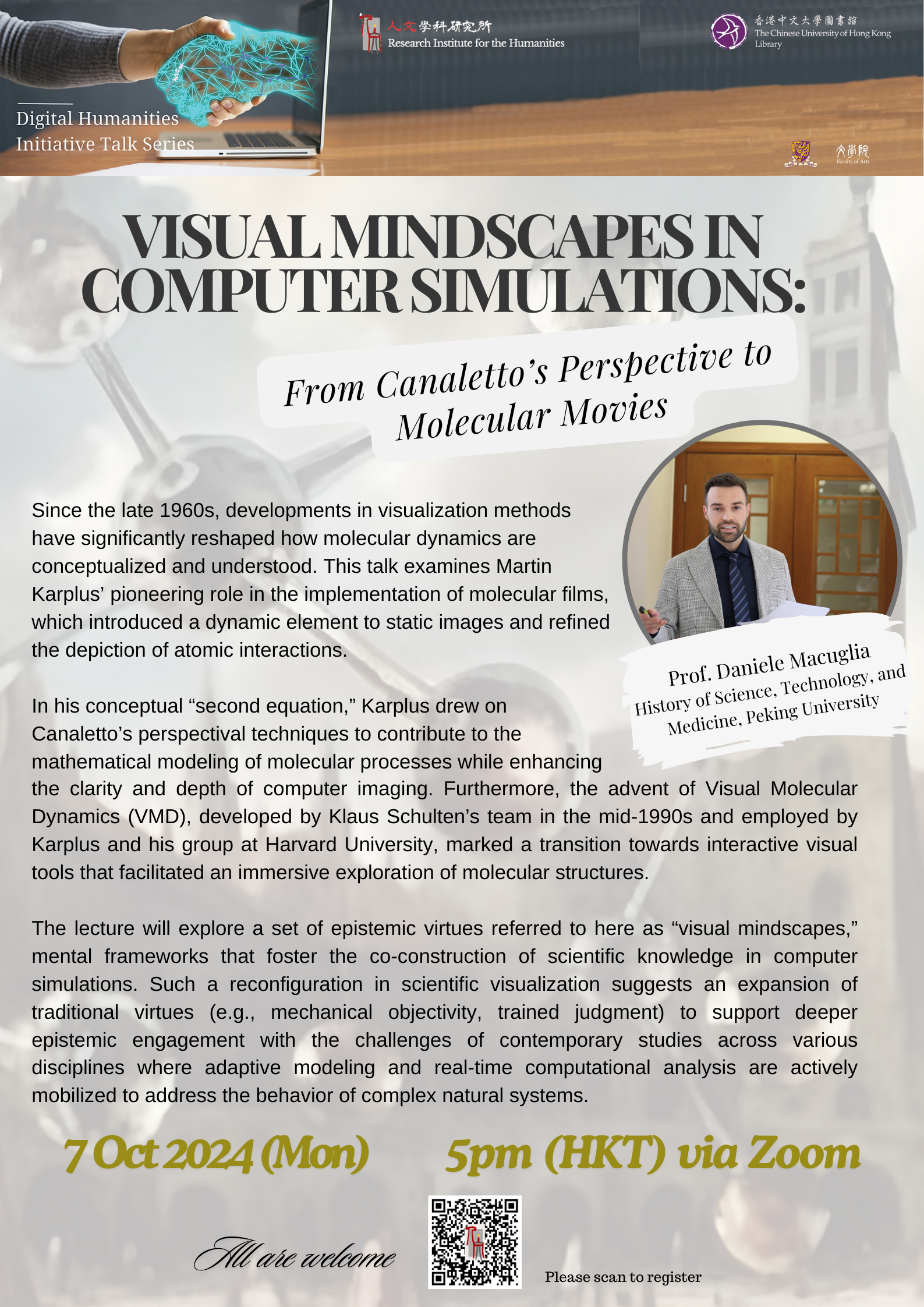Digital Humanities Initiative Talk Series – Visual Mindscapes in Computer Simulations: From Canaletto’s Perspective to Molecular Movies
Date: 7 October 2024 (Mon)
Time: 5pm (HKT)
Via Zoom
Language: English
Speaker:
Prof. Daniele Macuglia
Academia for Advanced Interdisciplinary Studies, Department of History of Science, Technology, and Medicine, Peking University
About the talk:
Since the late 1960s, developments in visualization methods have significantly reshaped how molecular dynamics are conceptualized and understood. This talk examines Martin Karplus’ pioneering role in the implementation of molecular films, which introduced a dynamic element to static images and refined the depiction of atomic interactions. In his conceptual “second equation,” Karplus drew on Canaletto’s perspectival techniques to contribute to the mathematical modeling of molecular processes while enhancing the clarity and depth of computer imaging. Furthermore, the advent of Visual Molecular Dynamics (VMD), developed by Klaus Schulten’s team in the mid-1990s and employed by Karplus and his group at Harvard University, marked a transition towards interactive visual tools that facilitated an immersive exploration of molecular structures. The lecture will explore a set of epistemic virtues referred to here as “visual mindscapes,” mental frameworks that foster the co-construction of scientific knowledge in computer simulations. Such a reconfiguration in scientific visualization suggests an expansion of traditional virtues (e.g., mechanical objectivity, trained judgment) to support deeper epistemic engagement with the challenges of contemporary studies across various disciplines where adaptive modeling and real-time computational analysis are actively mobilized to address the behavior of complex natural systems.
About the speaker:
Daniele Macuglia is a historian of science and currently serves as an assistant professor at Peking University, within the Academia for Advanced Interdisciplinary Studies, Department of History of Science, Technology, and Medicine. He completed his Ph.D. in the Conceptual and Historical Studies of Science at the University of Chicago in 2017.


